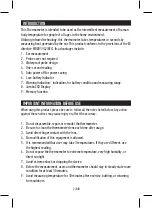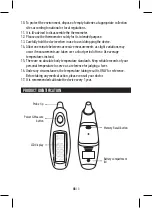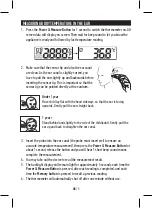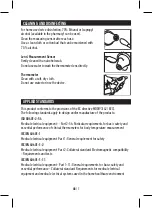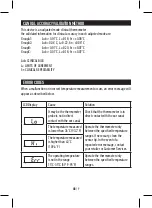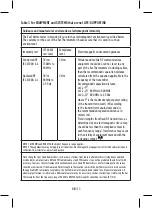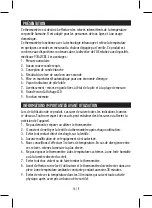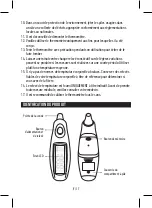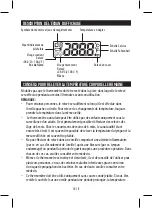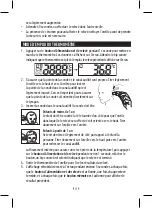
4 |
GB
GB
| 5
DESCRIPTION OF LCD DISPLAY
TIPS FOR MEASURING HUMAN TEMPERATURE
Bear in mind that the thermometer needs to have been in the room in which the
measurement is taken for at least 30 minutes before use.
NOTE:
• Some people produce different readings in their left and right ear. In order to record
temperature changes, always measure a person’s temperature in the same ear.
• The ear thermometer may be used by children only under adult supervision.
Measurement is usually possible over the age of 6 months. In infants under 6 months,
the ear canal is still very narrow so the temperature of the eardrum often cannot be
recorded and the result displayed is often too low.
• The measurement must not be taken in an ear affected by inflammatory diseases
(e.g. discharging pus or secretion), after possible ear injuries (e.g. eardrum damage)
or in the healing period after operative procedures. In all of these cases, please
consult your doctor.
• Use of the thermometer on different persons can be inappropriate in the event of
certain acute infectious diseases because of the possible spread of germs despite
cleaning and disinfection. If you have any doubts, please consult your doctor.
• This thermometer may only be used without a disposable protective cover.
• If you have been lying on one ear for some time, the temperature is slightly raised.
Wait 60 seconds or measure in the other ear.
• As ear wax can affect the measurement, you should clean the ear before measuring
if necessary.
Temperature in degrees
Celcius scale
Fahrenheit scale
Scan in progress
Frowning face
Measurement
≥38.0°C(≥ 100.4°F)
Fever
Smiling face
Measurement
<38.0°C(< 100.4°F)
No Fever
Low battery warning
Memory symbol and sets of records


